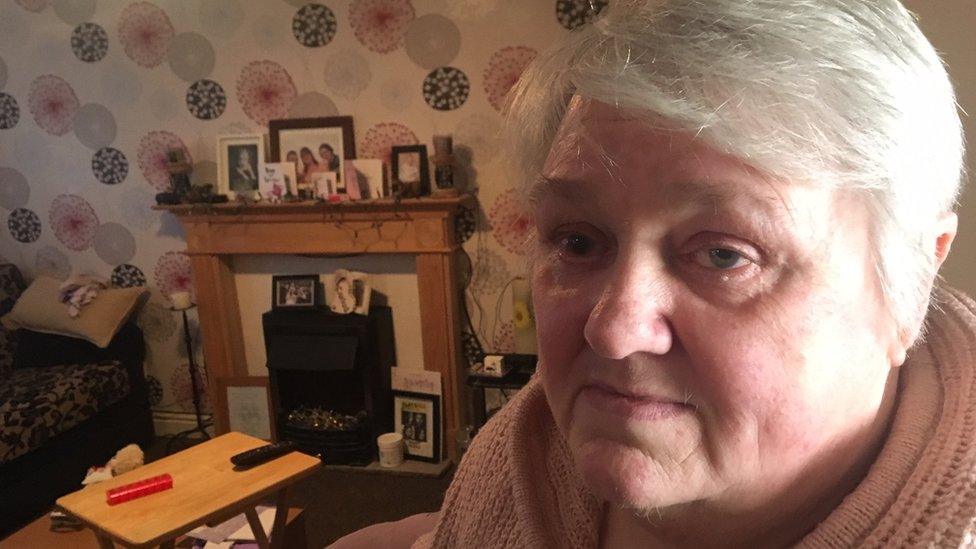Coronavirus: People scared to get help 'going slowly blind'
- Published
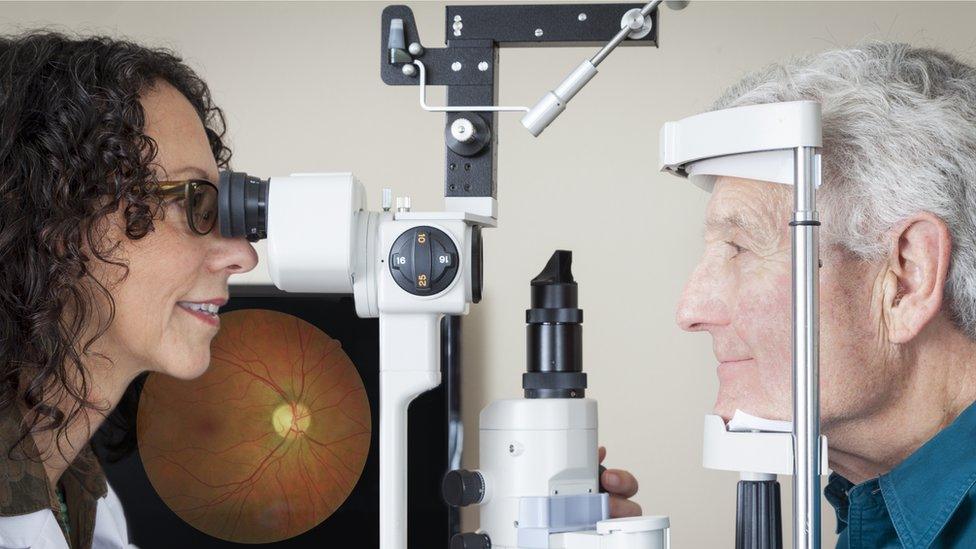
Ophthalmologists say some patients feel they are a 'burden' during the current virus crisis
People with serious eye conditions are "sat at home, slowly going blind" because they are afraid to seek treatment, the chief executive of Optometry Wales said.
Sali Davis said some patients were "terrified" to leave their house because of coronavirus.
Patients have also seen treatment clinics moved long distances away.
The Welsh Government said it expects health boards to provide urgent and essential treatment during lockdown.
Ms Davis reassured people they would be safeguarded accessing care, but warned: "If you lose your sight because of a sight-threatening condition, such as macular degeneration, we can't restore that sight once it is gone."
She also said some patients who were receiving secondary care in hospitals for eye conditions were not being seen quickly enough because of coronavirus-related delays.
Moira Jenkins from Haverfordwest has suffered from age-related macular degeneration for four years - a condition which causes loss of vision, and affects more than 1.5 million people in the UK.
But all clinics at Withybush Hospital have been cancelled and the 55-year-old was offered an alternative in Aberaeron, Ceredigion, almost 50 miles away.
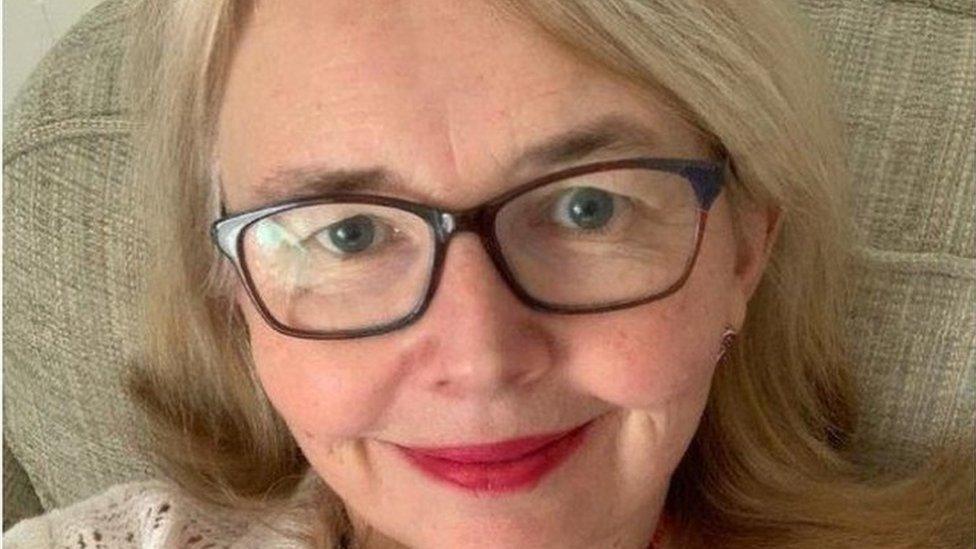
Moira Jenkins has faced problems during the lockdown receiving treatment
"The eye clinic is literally inside the main doors at Withybush, and I can't understand how dragging me to Aberaeron, via hospital transport if available, is not riskier than attending Withybush, which is a two-minute drive away from me," she said.
After she did not attend, Hywel Dda health board sent her a letter, urging her to visit, outlining the possible risks, including the fact her condition can "advance very rapidly at times".
"My son broke lockdown and picked me up and took me to Aberaeron, where I had my scan and injection," she said.
"I'm lucky I've got supportive family."
What causes age-related macular degeneration?
A Hywel Dda health board spokesman said few clinics and services are deliverable in the way they were before the pandemic.
"Any changes we have made are in the interest of patient and staff safety and are continually under review as the pandemic progresses," he said.
In Bridgend, Edwina Knight began experience problems, saying: "I was playing a game on my tablet, and my eyes went foggy.
"I just blamed it on tiredness and dirty glasses so went to bed not thinking much of it, but when I woke up I couldn't see anything out of my left eye."

Edwina Knight did not seek help until she had lost her sight in one eye
The 78-year-old contacted her local opticians and was examined at the store, before being referred to hospital.
It was discovered she had had a Transient Ischaemic Attack - also known as a mini-stroke - behind her eye.
"When they told me I had suffered it, I was shocked, I'd never heard of it before." Mrs Knight said.
"The doctor at the hospital told me that, had they seen me sooner, they could have saved my sight."
Sight in her left eye will never be restored, but she is on medication to reduce the risk of something similar happening again.
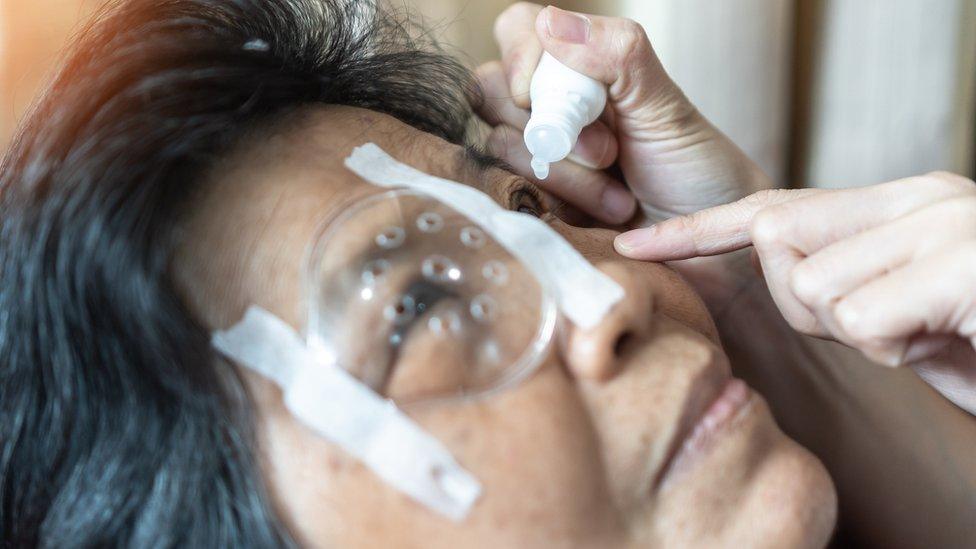
Age-related macular degeneration often hits people in their 50s or 60s
Omair Khan, the optometrist director of the store that assessed her, urged people experiencing eye problems to seek help.
"In many cases, it is nothing to worry about, but sometimes it can be an indication of a more serious health condition," he said.
Gwyn Williams, a consultant ophthalmologist at Singleton Hospital, Swansea, said the difficulties facing patients around their treatment is a combination of many things.
Some have said they do no want to bother him at a busy time, adding: "That's a very depressing thing to read, because we ourselves are available for all emergency eye care at the moment, and we're still undertaking sight-saving procedures now, we never stop.
"It's very sad when people feel they are a burden to us when we're fighting this virus, and the truth is, we are here to save sight, and that's what we want to do."
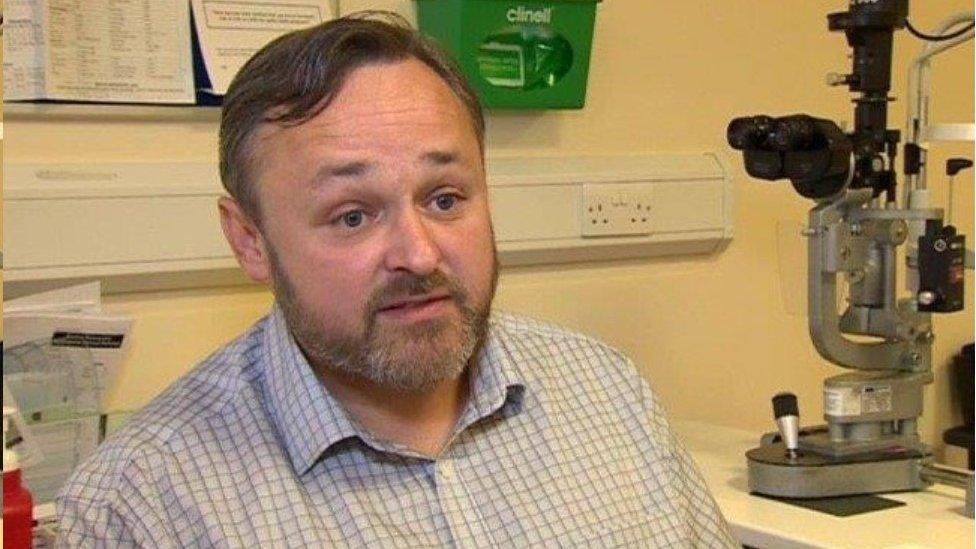
Gwyn Williams said it saddened him that some patients had written to him saying they did not want to bother him by visiting during the pandemic
He also said closing clinics and deferring some appointments has been a massive inconvenience for those who need treatment.
When the pandemic ends and an audit takes place, "a visual price" can be put on reduced activities, he added.
A Welsh Government spokesman said it expects health boards to provide urgent and essential treatment.
But he added: "However, on occasions this may be at different locations to ensure treatment can be provided safely. We have also asked all health boards to identify the most urgent cases from their waiting-list for eye conditions, so that they can be seen first or at the most clinically appropriate time.
"We have also issued a framework for the NHS in Wales for restoring activity, including options to introduce routine surgery."
- Published4 August 2018
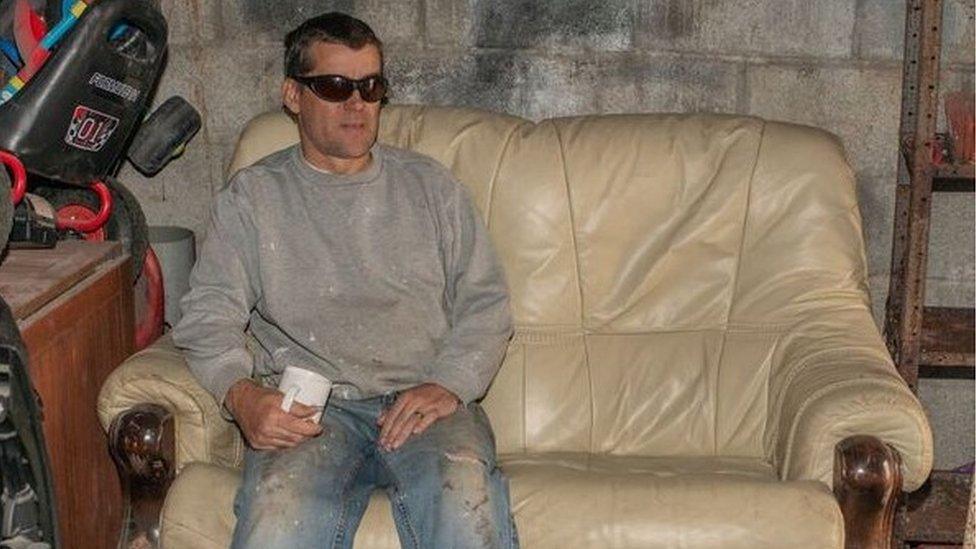
- Published11 June 2019
